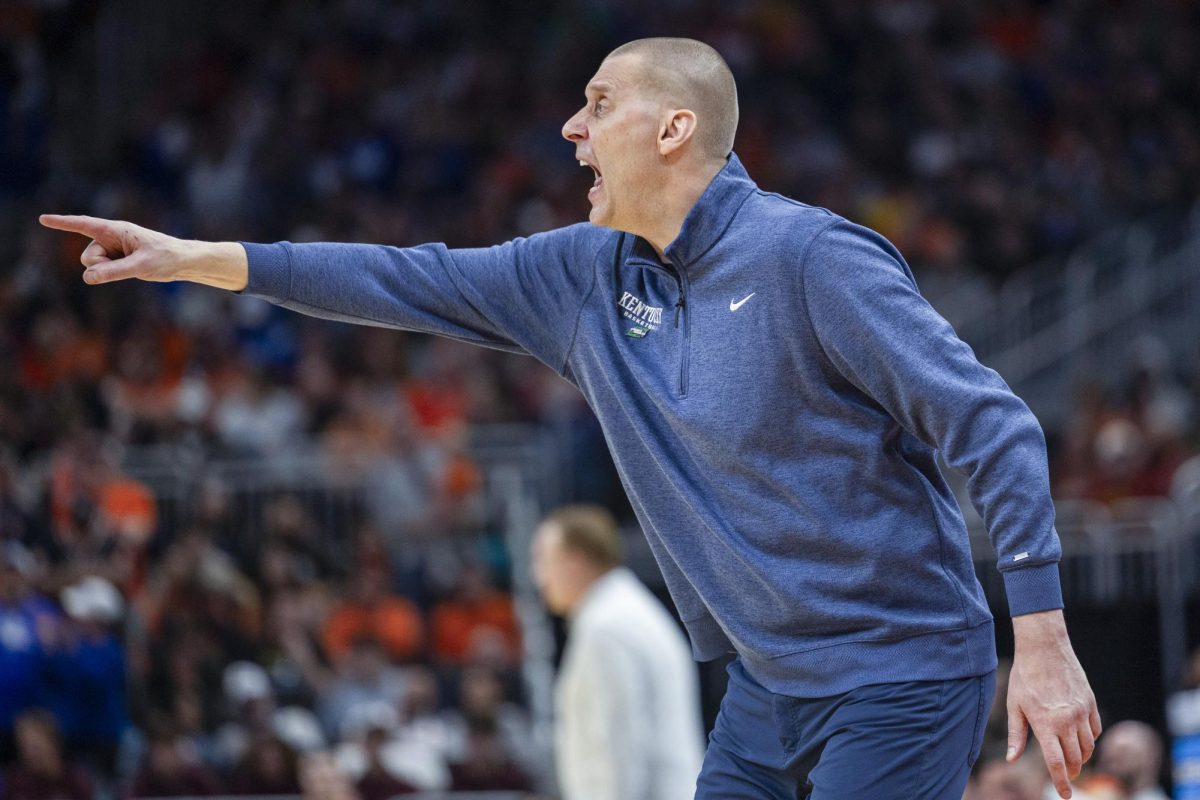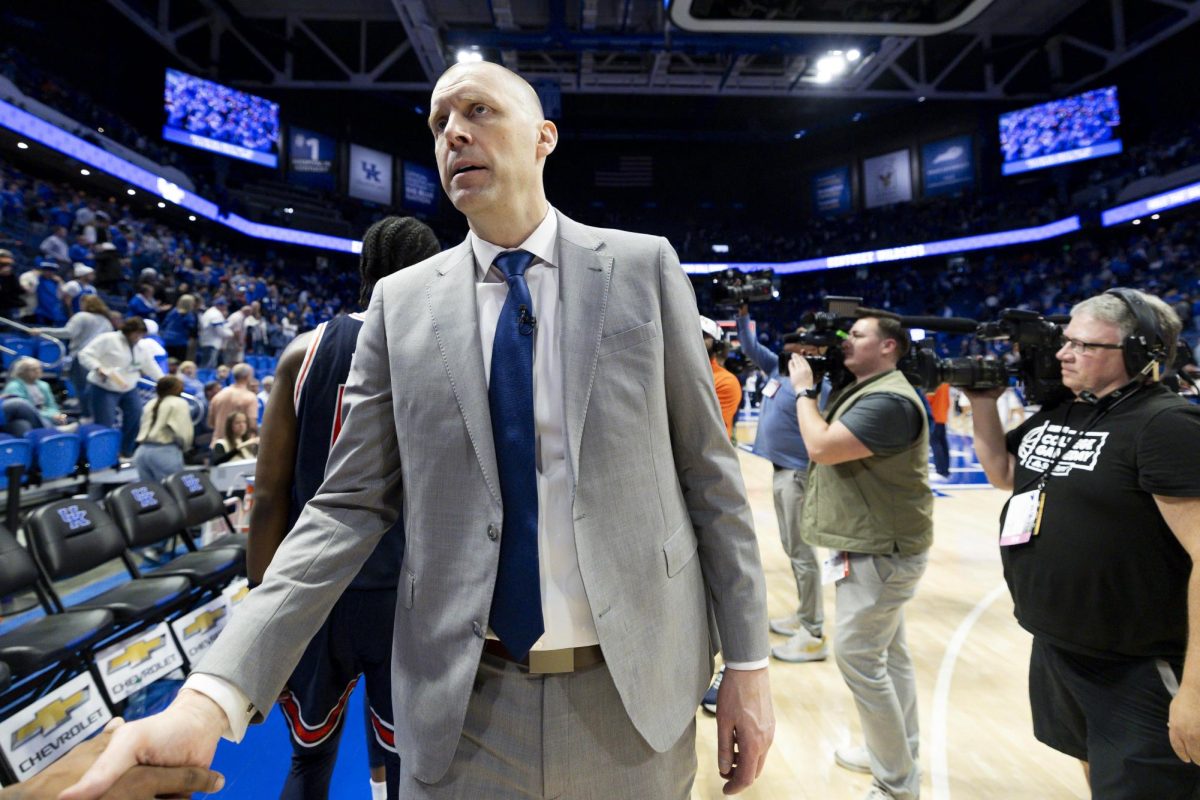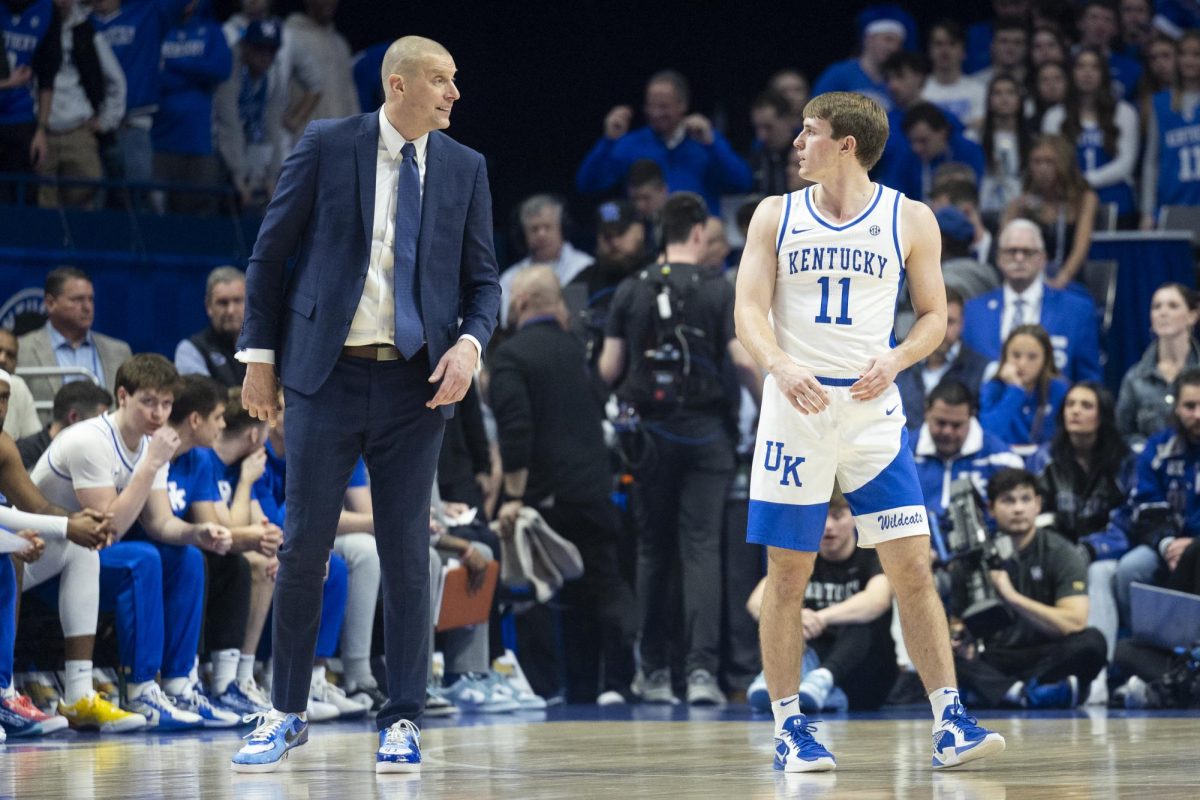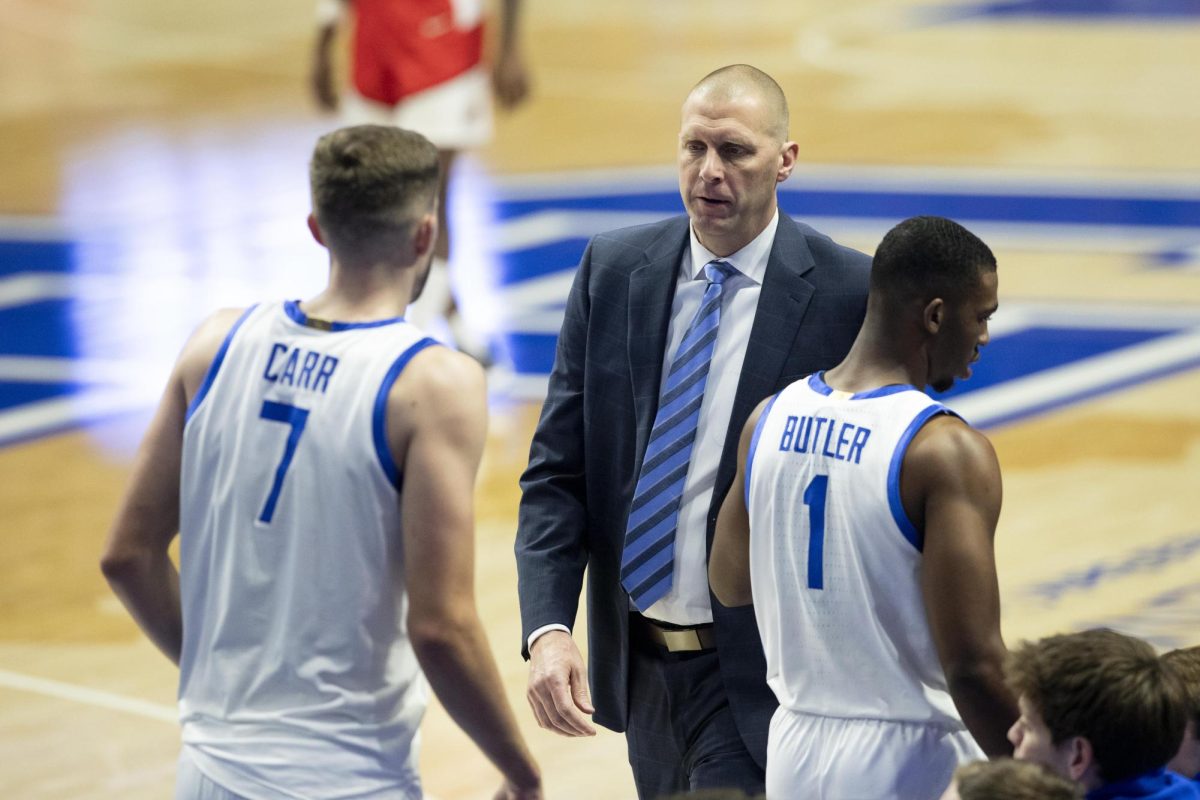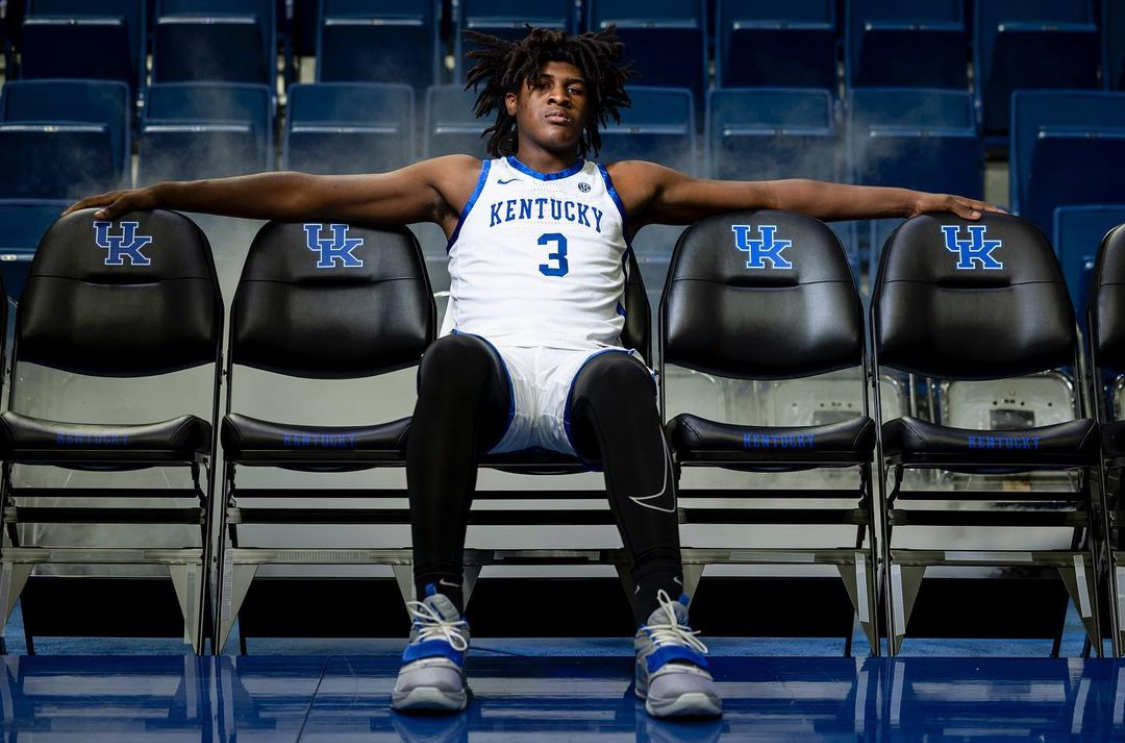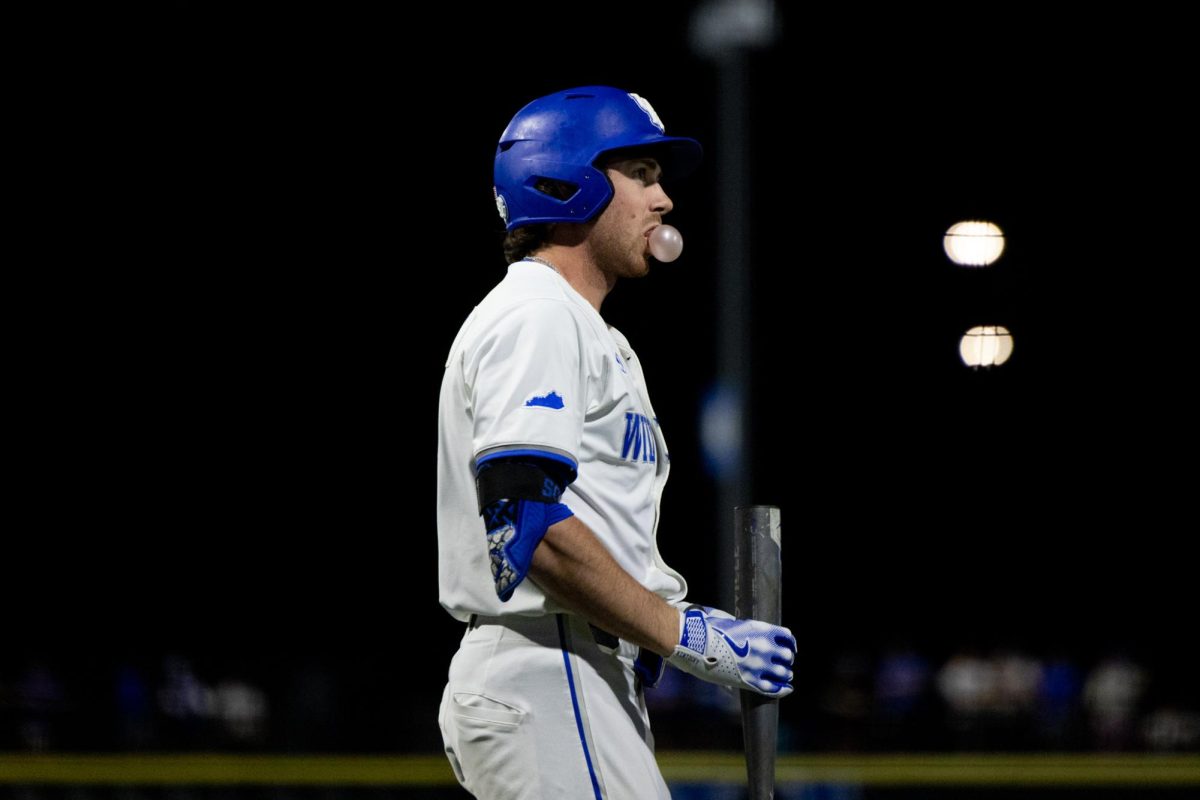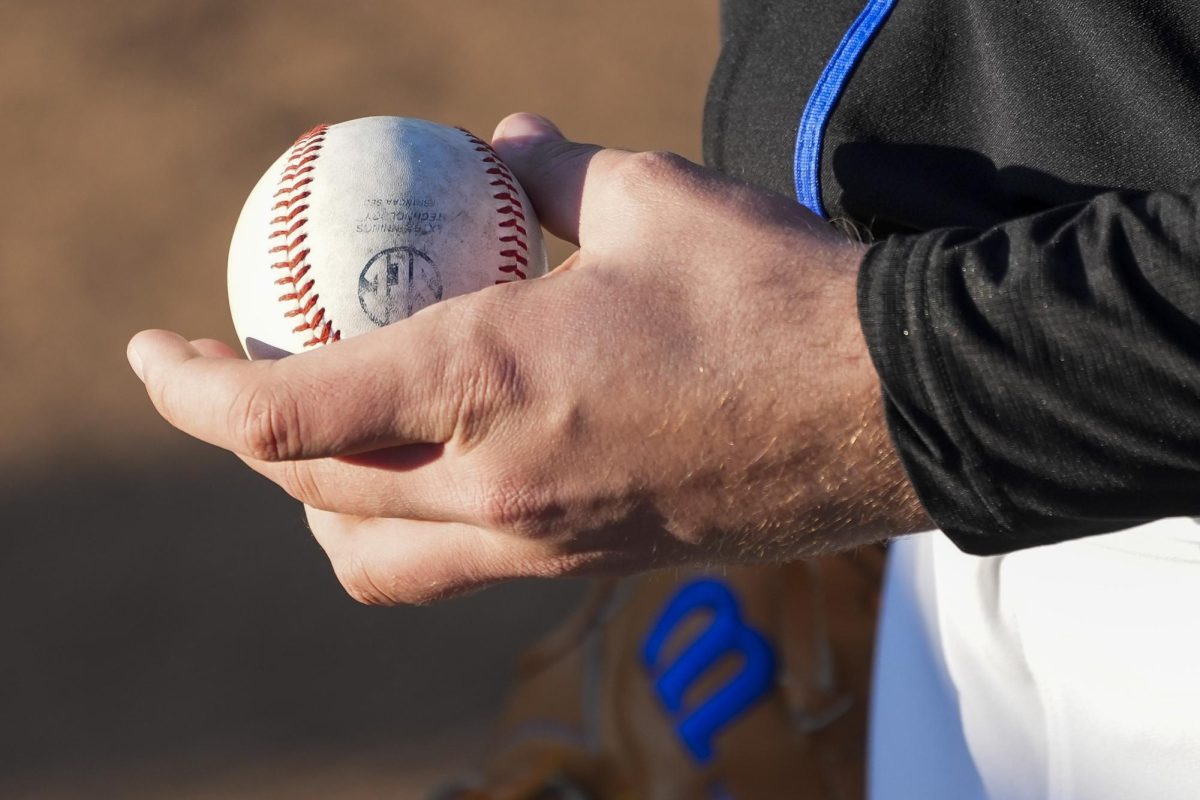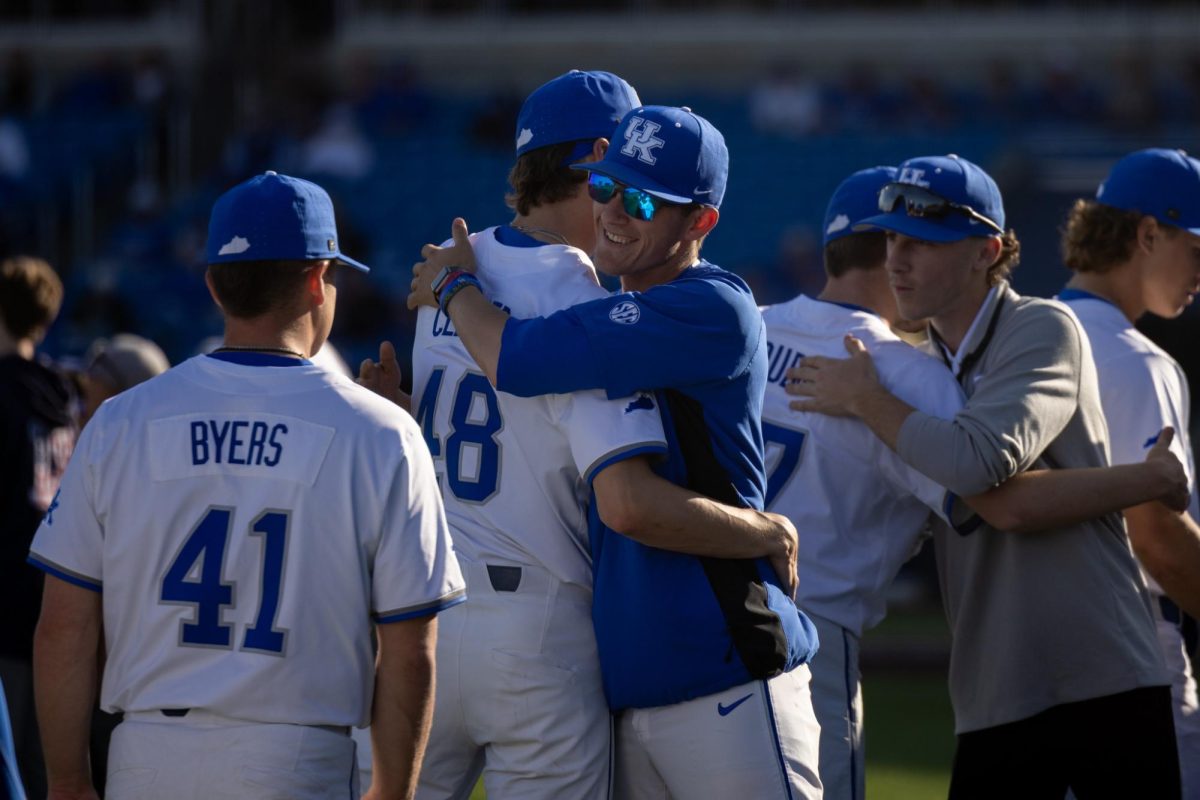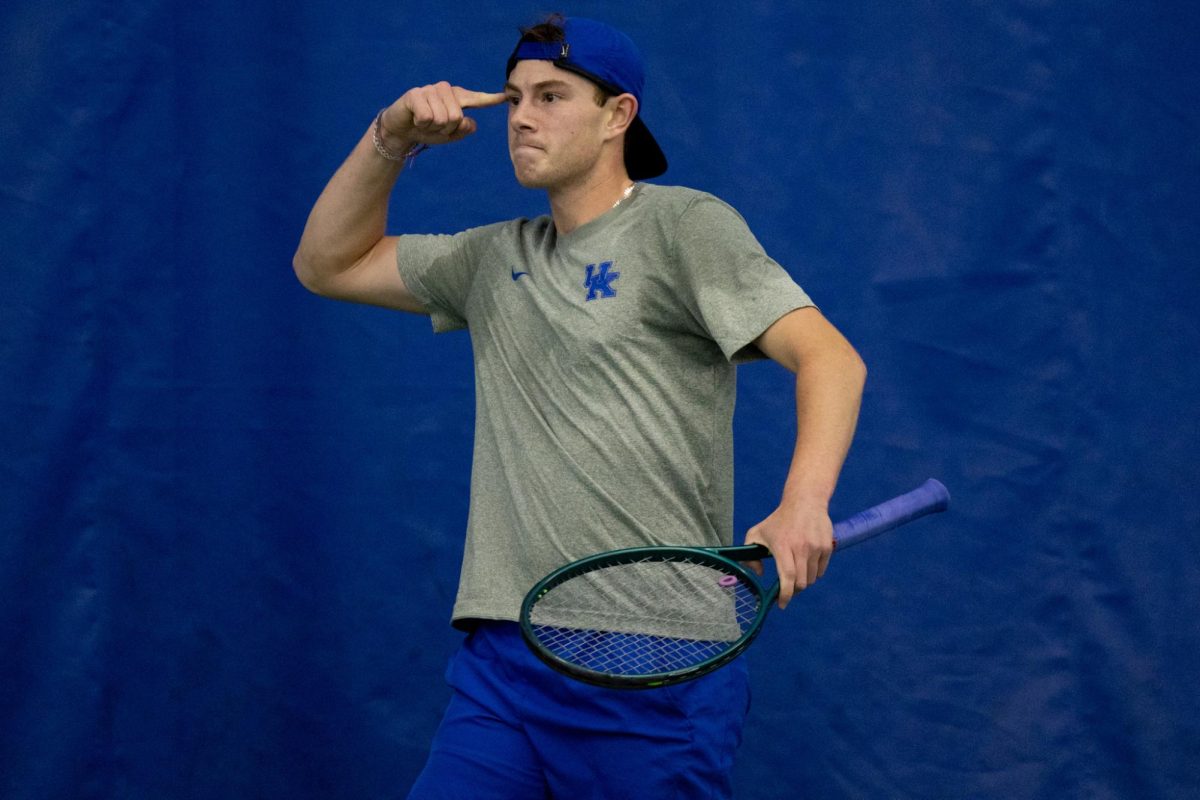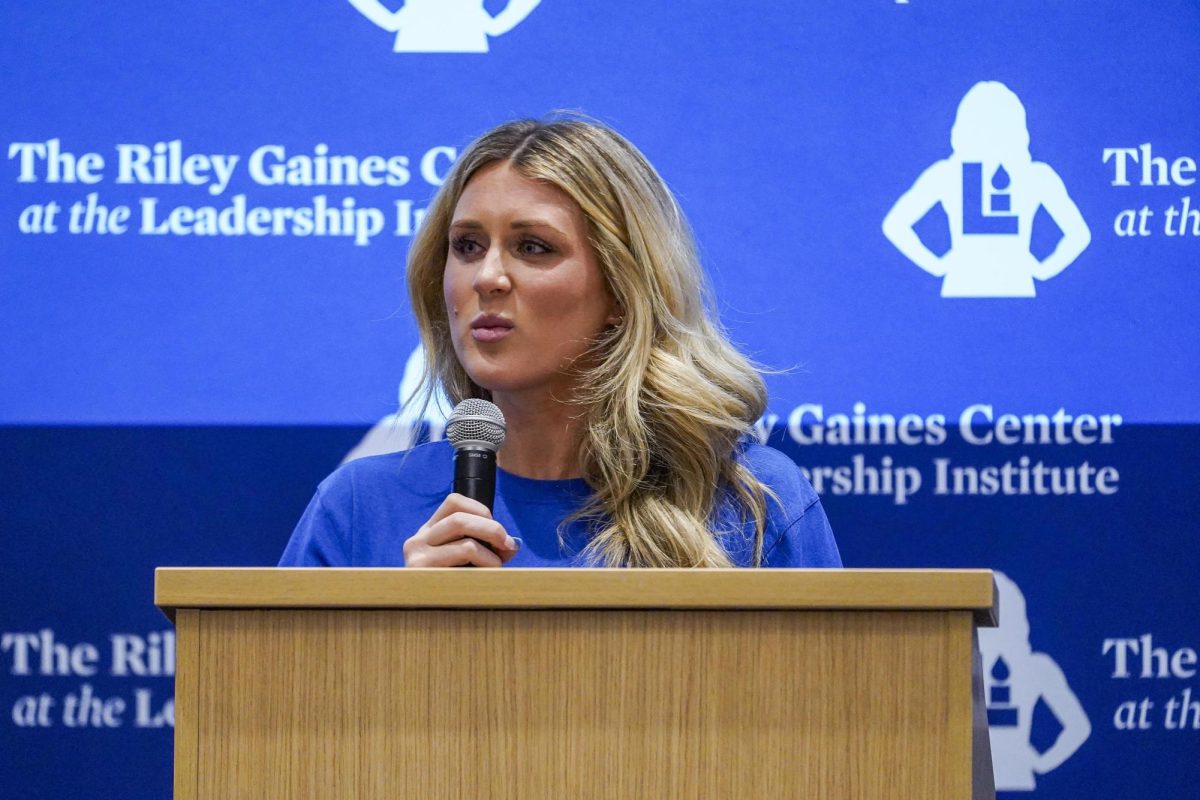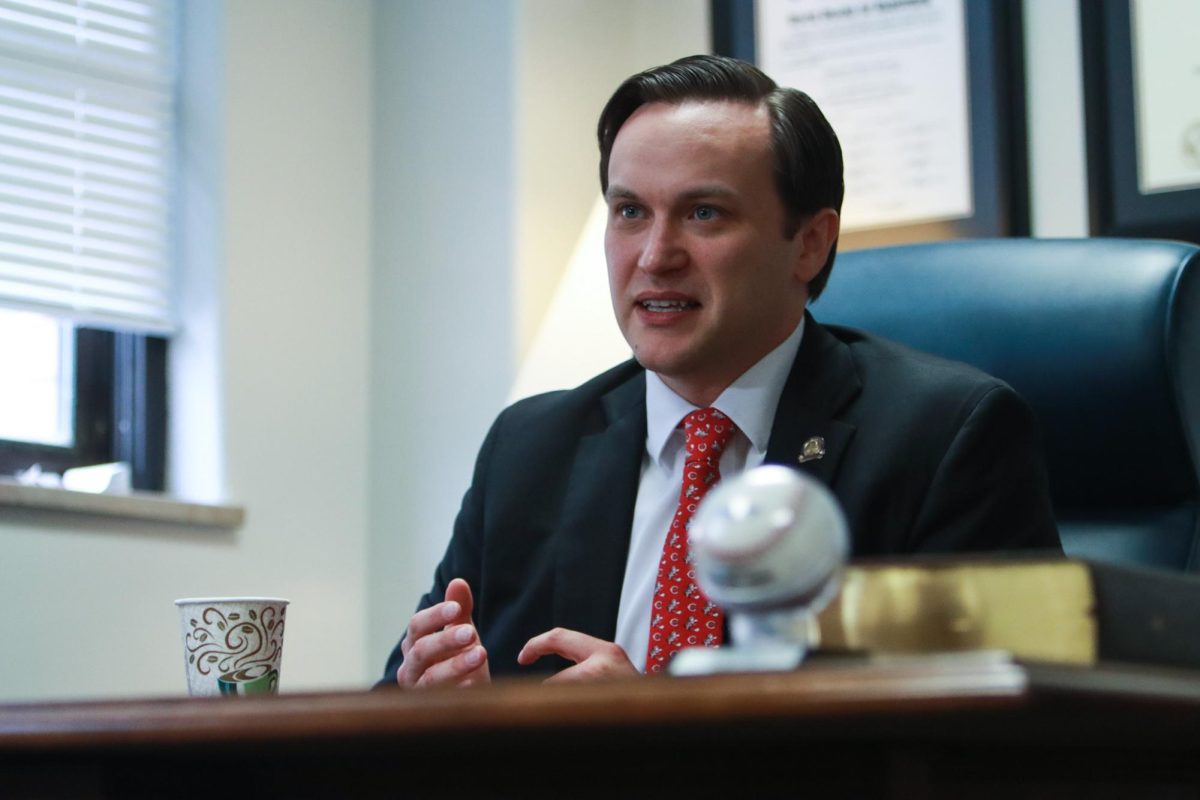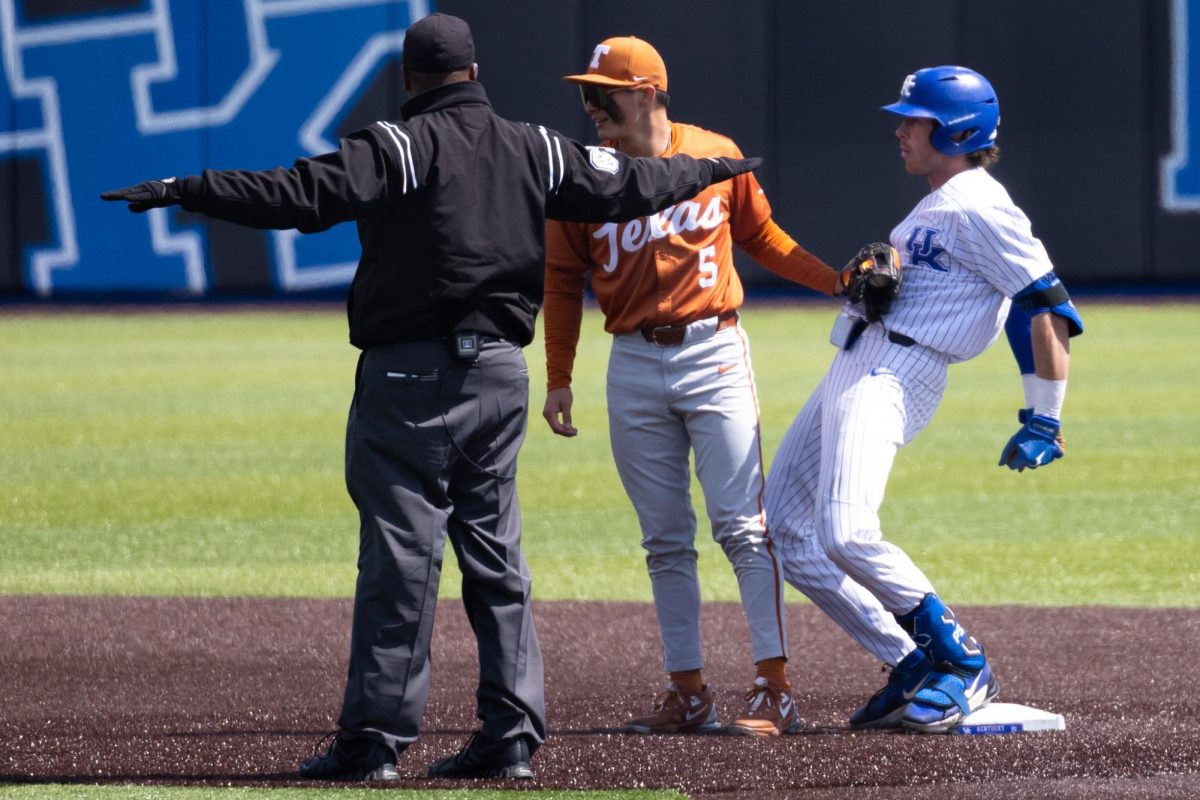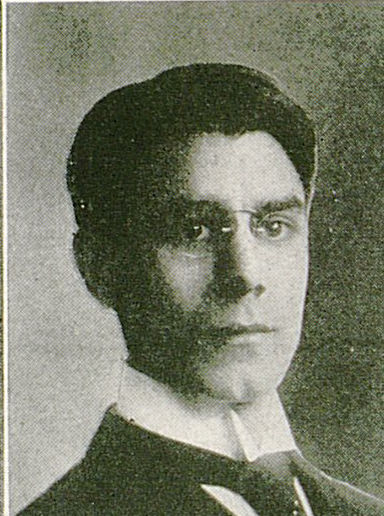Bed sheet signals secret society’s presence on UK campus
January 28, 2019
An ominous bed sheet, hung from a UK parking garage, heralded the possible existence of a century-old secret society.
A large painted sheet, which hung from the Rose Street parking garage on the morning of Thursday, Jan. 18, may have been the insignia of a controversial secret fraternity which has reportedly vied for power on American college campuses since the late 19th century.
The banner, which displayed a skull above two crossing keys, was tied to the roof of the parking garage on the south side, which faces the Don and Cathy Jacobs Science Building. Theta Nu Epsilon is spelled out in Greek lettering on the skull’s forehead, and below the keys is XVIII, which is 18 in Roman numerals.
“We do exist,” was painted prominently above the skull. Upon closer inspection, two Miller Lite beer cans were duck taped to the bottom corners of the sheet, presumably to weigh the banner down in the wind.
UK spokesperson Jay Blanton told the Kernel that the banner bore the insignia of the Theta Nu Epsilon fraternity, and that campus officials were looking into the incident. The sheet was taken down by the afternoon.
Theta Nu Epsilon is not listed on any university list of official Greek organizations. Various media outlets and university historical archives have stated over the years that the fraternity is a secret society that operates at some schools across America.
An article, published by the University of Oregon’s special collections library, states that the fraternity started in 1870 at Yale University as an offshoot of the Skull and Bones society. Theta Nu Epsilon came to the Oregon campus in 1900 and by the 1930s had significant control of the student government association and other facets of student life.
“Theta Nu Epsilon developed outside the fraternal infrastructure, incorporating members from each fraternity on campus in order to form a cabal that controlled student government and student life behind the scenes,” the article states.
There is little evidence of previous Theta Nu Epsilon activity on UK’s campus. Terry Birdwhistell, UK’s lead oral historian, said he did some searching in the university archives but only turned up one UK student who ever publicly claimed to be part of the fraternity.
Leon Frankel, a UK graduate and engineering faculty member, had the fraternity listed in his 1907 and 1908 yearbook entries, according to a snippet of an old yearbook that Birdwhistell sent to the Kernel.
The fraternity has reportedly had a firm grip on power at the University of Alabama for close to a century. According to a dissertation on collegiate secret societies penned in 2015 by Mackenzie Crane, the Theta Nu Epsilon chapter at Alabama is commonly referred to as “the Machine.”
The Machine, which is open to Greek life members chosen by the fraternity, uses its network of students and alumni to make sure that Machine-backed students get elected to prominent SGA positions at Alabama, the dissertation stated.
Numerous opinions pieces published in the University of Alabama’s student newspaper and on AL.com, the state’s largest newspaper, claim that the fraternity runs much of Alabama’s student government and is responsible for limiting diversity in that university’s Greek system.
John Thelin, a UK education professor who is widely known for his historical research into higher education, said he did not know much about Theta Nu Epsilon, but could speak to the influence of collegiate secret societies.
Nationally, the most famous secret societies are at Yale University, Thelin told the Kernel. The Skull and Bones society, which began at Yale, has famously hosted five generations of the George Bush family.
“When the late George Bush was having a rough spot in his career, Skull and Bones members assembled in New Haven (Conn.) and summoned him for a ‘bucking up’ dinner – a tough love admonishment to shape up, chin up and be a leader, etc.,” Thelin wrote in an email.
Many college deans don’t like secret societies because they often resist control, Thelin said.
“On the other hand, often deans and presidents who are alumni may themselves be members of the secret society,” Thelin said. “Hence, the societies often are able to resist intrusion or reform or control.”
Birdwhistell said that obtaining information on a group which intentionally tries to hide itself, can be challenging, especially for those looking to prove their existence.
“Now, of course, the paradox in learning about college secret societies is that, well, then they really would not be secret!” Thelin wrote.



































